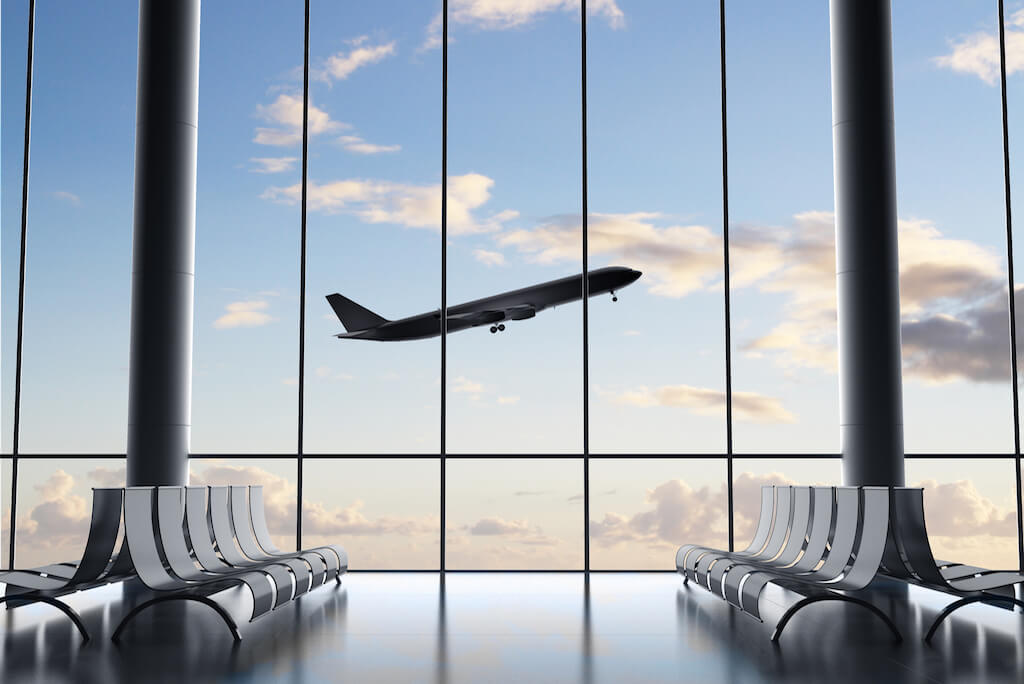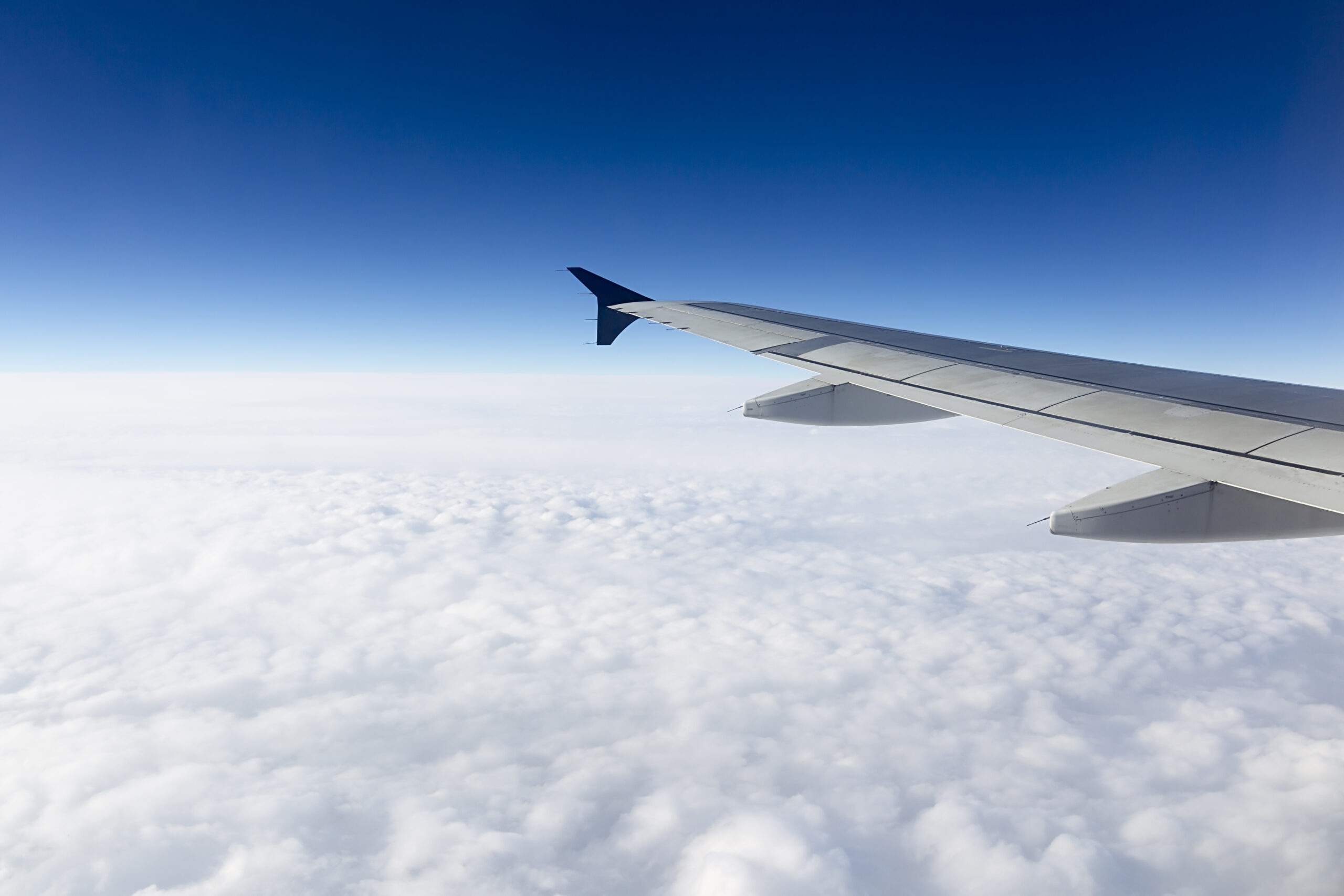
Kennst du das auch? Du steigst voller Vorfreude in das Flugzeug, kommst nach vielen Stunden an deinem Zielort an und bist total gerädert. Wie schön wäre es jetzt, dich in deiner Unterkunft ins Bett zu legen. Aber es ist gerade mal Mittag in deiner neuen Heimat auf Zeit – Hallo Jetlag!
Bei einer Zeitverschiebung ab zwei Stunden und vor allem solchen in Richtung Osten ist der Jetlag leider dein ständiger Begleiter. Tag und Nacht verschieben sich und dein Biorhythmus kommt ziemlich durcheinander.
Als Reiseblogger und Reiseveranstalter für Gruppenreisen bin ich mehrmals im Monat unterwegs und kenne die Folgen des Jetlags. Mit den Jahren habe ich mir jedoch einige Strategien für Reisen mit Zeitdifferenz entwickelt.
In diesem Artikel kläre ich über Jetlag und dessen Symptome auf und nenne dir zudem 10 Tipps und Tricks, um Jetlag vorzubeugen oder auch, was du dagegen tun kannst.




Schlaflosigkeit oder Schlafstörungen
Tagesmüdigkeit
Magenverstimmung, Verdauungsprobleme
Allgemeines Gefühl von Unwohlsein
Stimmungsschwankungen
Kopfschmerzen und Reizbarkeit
Konzentrationsschwäche

Ein Jetlag ist eine vorübergehende Schlafstörung, die auftritt, wenn die innere Uhr des Körpers, auch zirkadianer Rhythmus genannt, aus dem Takt gerät durch schnelles Reisen über mehrere Zeitzonen hinweg.
Dies kann zu verschiedenen Symptomen führen, einschließlich Schlaflosigkeit, Tagesmüdigkeit, Schwierigkeiten bei der Konzentration, Magenverstimmungen und allgemeinem Unwohlsein. Dabei treten die Symptome auf, weil unser Körper Zeit benötigt, um sich an den neuen Tag-Nacht-Rhythmus anzupassen.
In der Regel klingen die Symptome innerhalb weniger Tage ab, sobald sich der Körper an die neue Zeitzone angepasst hat.

Wir bieten verschiedene Gruppenreisen an, die zwischen 5 bis 10 Tage dauern. Wie wäre es mit einem Schneeabenteuer in Finnisch Lappland oder aber einer Namibia Rundreise?
Um Jetlag zu vermeiden, beginne schon zu Hause damit, dich an den neuen Rhythmus zu gewöhnen. Flüge nach Osten sind oft schwieriger, da der Tag verkürzt wird, während er bei Flügen nach Westen verlängert wird.
Passe deine Schlafenszeit einige Tage vor dem Abflug an: Gehe ein bis zwei Stunden früher schlafen, wenn du nach Osten fliegst, und bleibe länger wach, wenn du nach Westen reist.
Wenn du mit Jetlag zu kämpfen hast, beachte die Ankunftszeit deines Fluges. Morgens ankommende Flüge können hart sein, da der Tag sich hinzieht und du möglicherweise Schwierigkeiten hast, am Nachmittag wach zu bleiben.
Idealerweise solltest du am Nachmittag oder Abend ankommen. Dann musst du dich nur noch ein paar Stunden wach halten, kannst dich bewegen, etwas essen und dann ins Bett gehen.
Deine Umstellung auf die neue Zeitzone sollte schon im Flugzeug beginnen, so gewöhnst du dich zumindest schonmal mental an den neuen Rhythmus. Da sich ein Jetlag viel über den Kopf entwickelt, kannst du mit der frühzeitigen Uhrumstellung etwas besser steuern.
Sobald du also im Flugzeug sitzt, stell deine Uhr auf die neue Uhrzeit um, die du am Zielort vorfinden wirst, und halte dich noch etwas wach, wenn es dort noch Tag ist.
Meistens wird im Flugzeug auch dafür gesorgt, dass das Licht beispielsweise gedimmt wird, wenn es am Zielort Zeit zu schlafen ist, obwohl draußen vielleicht noch komplett die Sonne scheint.

Um Jetlag zu bekämpfen, passe deinen Schlaf-Wach-Rhythmus an das Ziel an. Bequeme Kleidung, ein Nackenkissen und Ohrenstöpsel können dir helfen, im Flugzeug zu schlafen. Weniger Schlaf in der Nacht vor dem Abflug kann ebenfalls hilfreich sein, da du dann im Flieger leichter einschläfst.
Einschlafhilfen mit Melatonin unterstützen den Körper beim Herunterfahren und Durchschlafen. Die Anti-Jetlag Pillen von Braineffect sind dabei empfehlenswert. Sie enthalten „sleep“ und „awake“ Pillen. „Sleep“-Pillen helfen dir beim Einschlafen während des Abflugs. „Mood“ Pillen helfen dir, dich an die Tageszeit im Zielland anzupassen. Nimm 2 bis 4 Tabletten, sobald dort der Tag beginnt.
Sobald das Boarding abgeschlossen ist, frage die Stewardess, ob eine Reihe frei ist. Hier kannst du dich hinlegen und gut schlafen. Wenn dein Ziel im Westen liegt, versuche wach zu bleiben. Wähle eine Airline mit einem guten Entertainment-Programm, um wach zu bleiben.
Achte bei der Wahl der Airline darauf, eine größere mit einem guten Entertainment Programm wie zum Beispiel Emirates zu wählen. Die neuesten Filme und Serien halten dich garantiert ganz einfach wach.
Hast du dir schon mal darüber Gedanken gemacht, dass auch das Essen im Flugzeug einen Einfluss auf deinen Jetlag nehmen kann? Das ist tatsächlich so!
Wie auch auf dem Boden macht kohlenhydratreiches Essen eher schwer und müde. Wenn du also Richtung Osten fliegst dann hau ordentlich rein. Reis, Kartoffeln, Nudeln, aber auch ein Burger bei einem Zwischenstopp werden dein Bedürfnis nach Schlaf verstärken und du wirst wohl gesättigt einschlafen.
Bei einem Flug in den Westen solltest du eher auf leichte, eiweißreiche Nahrung zurückgreifen, was dir helfen wird, wach zu bleiben. Fleisch, Fisch oder Eier machen satt, aber beschweren nicht unnötig. So kann dein Körper alle Energien darauf verwenden, wach zu bleiben.

Viel Trinken ist beim Fliegen das A und O. Die Luft im Flugzeug ist meistens ziemlich trocken, das merkst du oftmals daran, dass die Haut direkt spannt, da dem Körper Wasser entzogen wird. Hol dir also zwischendrin immer wieder ein Glas Wasser, um deinen Wasserhaushalt auf einem gesunden Level zu halten.
Alkohol ist dagegen Gift über den Wolken. Du magst vielleicht denken, dass dir ein Glas Rotwein zum Einschlafen hilft – das ist vielleicht auch so -, aber die Wirkung ist nur kurzzeitig.
Er trocknet deinen Körper noch mehr aus und führt noch weniger dazu, dass du dich später an die neue Zeitzone anpassen kannst. Auch Kaffee oder schwarzer Tee sind aus dem gleichen Grund nicht wirklich ratsam. Entscheide dich also lieber für Wasser und Säfte!
Wenn du genügend Zeit hast und dein Geldbeutel es erlaubt, dann leg am besten einen Zwischenstopp auf dem Weg ein. Vor allem bei Fernreisen in Richtung Osten nach Asien, Australien oder Neuseeland kann so ein kurzer Stopp zum Erholen richtig gut tun.
Du kannst zum Beispiel ein paar Tage in Dubai, Abu Dhabi, Hongkong, Bangkok, Kuala Lumpur oder Singapur verbringen. Viel mehr als zwei bis drei Tage brauchst du in diesen Metropolen sowieso nicht.
Ein gemütliches Hotel, gutes Essen und ein bisschen die Gegend erkunden und du kannst mit neuen Energien den Weiterflug antreten. Du wirst sehen, dass dir die Zeitumstellung danach viel leichter fällt und so hast du sogar noch eine weitere Destination auf dem Weg gesehen!
Melde dich jetzt für unseren Newsletter an erhalte exklusive Einblicke und jede Menge Inspiration!
Um Jetlag zu bekämpfen, passe dich sofort dem Rhythmus deines Zielortes an. Vermeide Nickerchen, sie können den Jetlag verschlimmern. Wenn du morgens ankommst und müde bist, schlafe ein paar Stunden, steh aber am Nachmittag auf.
Lenke dich bis zur Schlafenszeit ab, trinke Kaffee, verlasse deine Unterkunft und erkunde die Umgebung. Iss zu lokalen Zeiten und bei kleinem Hunger nur eine Kleinigkeit. Tageslicht kann helfen, sich schneller anzupassen.
Ignoriere die Heimatzeit und lebe in der neuen Zeitzone. Frühstücke am Zielort, selbst wenn es zuhause Abendessenzeit wäre.
Sonnenlicht unterdrückt die Produktion des Schlafhormons Melatonin. Nutze also das Tageslicht, um wach zu bleiben. Frische Luft kann nach einem langen Flug hilfreich sein, um Müdigkeit zu überwinden.
Vermeide Schlafmittel gegen Jetlag, da sie nur kurzfristig wirken und den Körper durcheinander bringen können. Stattdessen könnten natürliche Methoden wie Verdunklung des Zimmers, Schlafmasken oder Ohrenstöpsel helfen.
Ruhige Musik oder Hörbücher könnten ebenfalls förderlich für den Schlaf sein.

Jeden Dienstag ab 4:00 Uhr morgens teilen wir aufregende Abenteuer und Geschichten aus aller Welt. Lass dich von unseren Podcast-Gästen in beeindruckende Landschaften mitnehmen und entdecke, wie sie ihre eigenen Grenzen erkundet und überschritten haben.
In den ersten paar Tage nimmst du dir am besten noch ein bisschen Zeit, um dich langsam an das neue Umfeld und die Zeitzone zu gewöhnen. Warte also mit deinem nächsten Abenteuer ruhig bis zum dritten Tag und sorge bis dahin für Entspannung.
Lange Flüge sind anstrengend für den Körper, daher ist Erholungszeit wichtig, insbesondere bei Temperaturwechseln am Reiseziel. Gib dir ein paar Tage Zeit dich zu akklimatisieren.
Ignoriere keine Müdigkeitsgefühle. Beginne mit kleinen Aktivitäten wie Spaziergängen statt sofort intensivem Wandern. Bei Schlafproblemen kann leichter Sport helfen, aber eine Balance zwischen Bewegung und Ruhe ist in den ersten Tagen entscheidend.
Du kennst deinen Körper am besten. Wenn du also schon vermutest, dass du zuhause wieder vom Jetlag geplagt werden wirst, dann fang noch vor deiner Heimreise an, deine innere Uhr wieder deiner Zeitzone zuhause anzunähern.
Wenn du also von Westen nach Osten fliegst, zum Beispiel aus Südamerika, dann ändere deinen Tagesablauf und geh früher ins Bett und steh früher wieder auf.
Du fliegst stattdessen aus dem Osten wie aus Australien, Neuseeland oder Asien? Dann halte dich länger wach und verlasse das Bett morgens etwas später. Du wirst merken, dass der Jetlag zuhause dann nicht mehr ganz so schlimm ist.

Es gibt kein garantiertes Heilmittel gegen Jetlag, aber die vorgeschlagenen Tipps können helfen, seinen Effekt zu minimieren. Es ist wichtig, wach zu bleiben und dem Bedürfnis zu widerstehen, ein Nickerchen zu machen.
Normalerweise dauert es zwei bis drei Tage, um sich vollständig anzupassen. Um Jetlag ganz zu vermeiden, kann man Europa erkunden oder nach Süden fliegen, zum Beispiel nach Südafrika, wo die Zeitverschiebung nur eine Stunde beträgt.
Speichere diesen Beitrag und folge Off The Path auf Pinterest. Entdecke noch mehr Tipps rund um deine Reiseplanung, schöne Wanderungen und jede Menge Reiseziele für dein nächstes Abenteuer.
Eine Unmenge an Flat White (australische Kaffeespezialität) wurde konsumiert, um diesen Beitrag zu schreiben und diesen Blog zu betreiben. Fülle unser Koffeinleben wieder auf, damit wir hier weiter machen können!